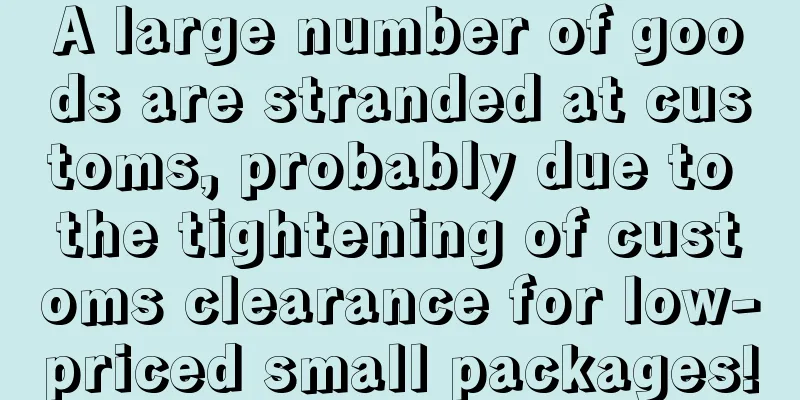Detailed explanation of Amazon Review weight!

|
In order to better understand the content of Review Weight, I changed my way of thinking to understand it, that is, how to identify fake reviews. From this perspective, I found a website that aims to help consumers restore the real ratings of products. In general, this website and Amazon are doing the same thing, which is to find out fake reviews and delete their impact. Based on the data of the website, we can try to introduce the way competitors get reviews, or let us avoid being caught for fake orders. The weight of the rating is composed of each reviewer. It will be very inspiring for us to integrate the characteristics of each Reviewer. Understanding the weight of each account will help us understand the weight of the rating in LISTING. Weighting factors: 1.Easy Graders 2. Overrepresented participation 3. Reviews on high volume days 4. One-Hit Wonders 5. Substantial repeated phrases 6. Brand Loyalists 7. Brand Monogamists 8. Incentivized reviews 9. Brand Repeaters 10.Take-Back Reviewers 11. Unverified purchases 12. Overrepresented word counts 13. Substantial overlapping history 14.Never-Verified Reviewers black account 15.Same-Day Reviewers One-Hit Wonders One-time Reviewer: These accounts wrote one review, which means they only reviewed one product. Unbiased reviewers are often long-time members of a site and they generally do not review just one product. If a product has too many one-time reviewers, it can indicate that there is a suspicion of review manipulation. While there are many reasons that may lead to one-time reviewers on a product, a few common reasons include: fake accounts, or somehow inducing people who don't write reviews to leave a review. Take-Back Reviewers Users whose reviews have been deleted: Include reviewers who have deleted reviews in their history. These reviewers are suspicious because the review was most likely removed by Amazon due to a Terms of Service violation. The reviewer was caught manipulating reviews before, and it’s unclear if they have stopped violating the rules. There are some other reasons for deleting comments: 1The buyer wants to delete it. 1. The brand contacts the buyer to remove the review - usually a negative one. 3. Amazon may delete a review - usually a positive one - if it believes it violates its rules. 4. After the review was posted, the platform changed its rules and deleted it. For example, after Amazon updated its review policy, many existing misleading reviews were deleted. Another example is that Amazon lowered the upper limit of Vine reviews for each product, so many Vine reviews that exceeded that limit were deleted. Single-Day Reviewers Buyers who posted all their reviews in one day are marked as one-day review buyers. These buyers' accounts are questionable because they do not leave reviews like most people, and it is not ruled out that they leave reviews on a whim. Substantial repeated phrases If there are a high number of reviews that use repeated phrases, it may indicate that the review was not created organically. However, there are still many good reasons why some phrases are repeated, and these phrases do not necessarily indicate that the review is biased. For example, in the case of electronics, many buyers will mention the features of the product, and it is normal for these words to be repeated. However, if several buyers write the same marketing language or subjective words exactly word for word, it may indicate that these buyers are ghostwriters. Overrepresented participation 1. Sellers use gifts or other means to get buyers to review their products. This will cause buyers who usually do not write reviews to not write reviews for the products, resulting in too many buyers with few review records. 2. Sellers look for service providers to brush, which will lead to abnormal structure of buyers. The above are the factors that influence the review weight, and there are some explanations. The content of the website is all in English, and I simply translated it. If you still have some confusion about some concepts, you can leave a comment to ask questions. If you are curious about some calculation methods of weight, then I will find time to translate some other content. What affects the weight is not only the buyer's account, but also the structure of the comments under LISTING, including sentences, review date, etc. For more information, please refer to this website: reviewmeta.com : This is similar to the explanation of the A9 algorithm. The core is to reflect the authenticity and accuracy of the things to be expressed. Therefore, no matter whether it is review or advertising weight, the best operation for the seller is to simulate the seller's authenticity of the entire shopping process, including pre-sales and after-sales of the product, including search terms before shopping, browsing time, collections, adding dogs, wish lists, consultations, orders, comment time, etc. To sum up, if you don't have time to do something too elaborate, the input-output ratio is not high, so it's better to make more orders. Besides, what's the use of knowing it? The cost of promotion is there. Only 0.001% of products are worth 0.1% of companies doing this. |
<<: Amazon daily operations: What data do sellers need to pay attention to?
>>: Useful information//What to do if the product cannot be found by keyword search?
Recommend
Amazon will build a new distribution center in Florida to support business expansion!
<span data-shimo-docs="[[20,"获悉,近日亚马逊宣布将在美...
What is Kidbox? Kidbox Review
Kidbox was founded in 2015 and is a monthly subscr...
New ways to advertise on Amazon! Have you used all these features?
As a global e-commerce giant, Amazon is always &qu...
What is Global Trading Assistant? Global Trading Assistant Review
Global Trading Assistant is a third-party store ma...
What is Dubizzle? Dubizzle Review
Dubizzle was founded in 2005 and is dedicated to p...
Amazon workers strike again on Prime Day
Written in front On October 14, the E-Commerce Ne...
Remove from shelves immediately! Three new brands are suing for infringement, and some sellers have received freeze notices...
This week's Infringement Class shares three of...
A roundup of Amazon’s hot events of the week!
1. IKEA stops its pilot program, and big brands a...
What is Instagram? Instagram Review
Instagram (Photo Wall) is an application that prov...
What is Find Browse Nodes? Find Browse Nodes Review
Find browse nodes can help sellers who are not sur...
How can sellers fill the Amazon "review pit"?
Amazon sellers are wailing bitterly: “The review p...
Amazon adjusts its advertising algorithm! Third-party sellers will suffer
The recent months are the off-season for Amazon s...
What is Forrest Gump Overseas Warehouse? Forrest Gump Overseas Warehouse Review
Agam Overseas Warehouse is an intelligent overseas...
What is Best Sellers? Best Sellers Review
Amazon generates the most popular products based o...









